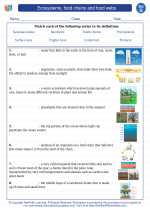Filtration in Science
Filtration is a process used to separate solids from liquids or gases using a filter medium that allows the fluid to pass through while retaining the solid particles. It is a common technique used in various scientific fields, including chemistry, biology, and environmental science.
How Filtration Works
During filtration, a mixture of solid and liquid or gas is poured onto a filter medium, typically a porous material such as filter paper or a ceramic filter. The liquid or gas passes through the filter, leaving the solid particles behind. The solid particles form a layer on the filter medium, known as the residue or the filtrate, depending on whether the solid material is collected or the filtrate is collected.
Applications of Filtration
Filtration is used in various scientific processes, including:
- Separating sand from water
- Filtering air to remove pollutants or particulate matter
- Isolating solid compounds from a liquid solvent in chemistry
- Purifying drinking water
- Separating biological components in laboratories
Study Guide for Filtration
To understand the concept of filtration, it's important to grasp the following key points:
- Filter Media: Understand the different types of filter media used in filtration processes and their properties. This includes filter paper, sand filters, and membrane filters.
- Filtrate and Residue: Learn the difference between the filtrate (the liquid or gas that passes through the filter) and the residue (the solid particles left on the filter).
- Applications: Familiarize yourself with the various applications of filtration in different scientific fields and real-life situations.
- Techniques: Understand the different techniques used in filtration, such as gravity filtration, vacuum filtration, and pressure filtration.
By mastering these concepts, you will have a solid understanding of the principles and applications of filtration in science.
[Filtration] Related Worksheets and Study Guides:
.◂Science Worksheets and Study Guides Seventh Grade. Ecosystems, food chains and food webs

 Activity Lesson
Activity Lesson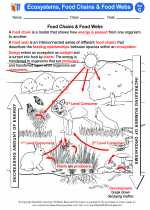
 Worksheet/Answer key
Worksheet/Answer key
 Worksheet/Answer key
Worksheet/Answer key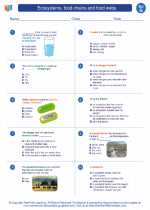
 Worksheet/Answer key
Worksheet/Answer key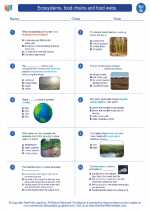
 Vocabulary/Answer key
Vocabulary/Answer key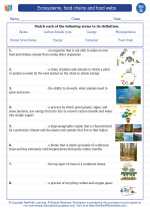
 Vocabulary/Answer key
Vocabulary/Answer key
 Vocabulary/Answer key
Vocabulary/Answer key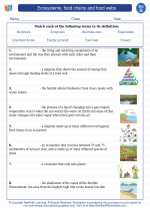
 Vocabulary/Answer key
Vocabulary/Answer key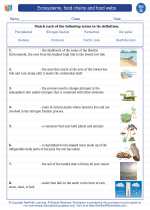
 Vocabulary/Answer key
Vocabulary/Answer key